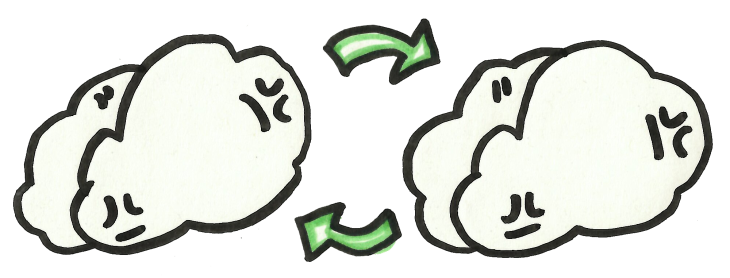Challenges in co-creating Climate Services
In the project Normativity, Objectivity and Quality Assurance of Transdisciplinary Processes (NorQuATrans), the researchers published a new paper on the interaction between Climate Service scientists and practitioners. The study identifies challenges and suggests best practices in such co-creation activities. Suhari et al. analyzed a series of interviews with climate service scientists to identify five main challenges in the scientists’ interactions with practice partners:
- Adequate entry-points and continuity of co-creation,
- Competencies, skills and training,
- Mutual understanding,
- Integration of practitioners’ realities,
- Balancing influence. From these challenges, they derive best practices and suggest ways to achieve them, including an increased emphasis on boundary management.

Grafik: GERICS/L. Ortheil
The project NorQuATrans is funded by the Helmholtz Institute for Climate Service Science (HICSS), a cooperation between Climate Service Center Germany (GERICS) and Universität Hamburg, Germany. NorQuATrans investigates the roles of researchers and practitioners from an epistemological viewpoint on the one hand and a more applied one on the other.
Suhari, M., Dressel, M., & Schuck-Zöller, S. (2022). Challenges and best-practices of co-creation: A qualitative interview study in the field of climate services. Climate Services, 25 (November 2021), 100282. https://doi.org/10.1016/j.cliser.2021.100282

